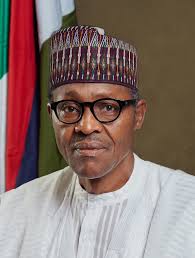
NNPC STRUGGLING TO SUPPLY CRUDE TO DANGOTE BECAUSE BUHARI USED REFINERY AS LOAN COLLATERAL – PENGASSAN
The Petroleum and Natural Gas Senior Staff Association of Nigeria (PENGASSAN) has explained the reasons behind the struggles of the Nigerian National Petroleum Company (NNPC) Limited in supplying crude oils to an indigenous refinery owned by Aliko Dangote.
Speaking in a recent Channels TV interview Thursday, PENGASSAN President, Festus Osifo, stated that the NNPC does not have enough crude to supply to the Dangote Refinery due to a loan taken by the previous government of Muhammadu Buhari, with the mineral resource used as a collateral.
He said, “We have very robust insights into what is happening today, into the price war that is going on between the Dangote Refinery as well as the government, represented by NNPC, in this case. And maybe I can share very few of them with us. What clearly happened was that Dangote built his refinery.
“They started discussing crude supply. The first thing is that in the oil and gas industry, it’s a highly regulated industry.”
Osifo explained, “What those companies (IOCs) said is if Dangote Refinery wants them to supply them immediately, it should pay some premium. So the issue of premium was what led to the initial conversation around the Dangote Refinery and the allegation that they were not supplying the refinery crude. This is because most of these companies were asking for premium.
“Coming to the part of NNPC and we should get this clearly. NNPC also has its own crude. Some years ago, the Buhari government, they went to Afrexim. They borrowed money. And this money that they borrowed, some of these crudes were tied to pay back this money. So, literally, what Dangote should have done is that you should have started discussing crude supply, five years ago. You don’t start discussing crude supply six months into production.”
Osifo had also said that the decision not to buy fuel from Dangote refinery directly but rather buy from NNPCL was due to a pricing disparity between the costs at which the NNPCL buys PMS and the prices it sells to independent marketers.
He noted that there were instances that the NNPC might purchase PMS at approximately N950 but end up selling to independent marketers at around N700, which helped to reduce the price at which the NNPCL would have otherwise bought the fuel.
He said major marketers would buy directly from Dangote Refinery at a price similar to NNPCL’s purchase but would need to sell it at a higher price, potentially over N1000.
“Independent marketers prefer to purchase from NNPCL to take advantage of the lower prices,” he said.
 Premium News
Premium News